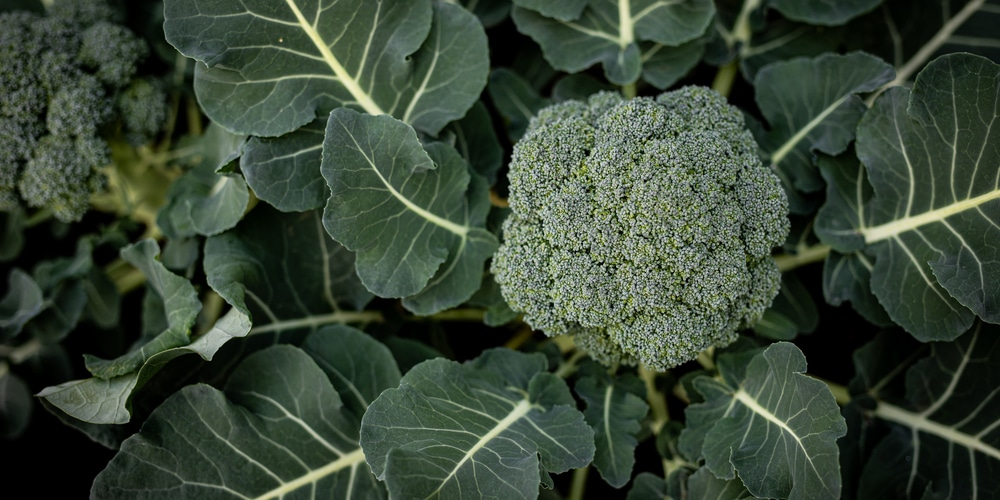Broccoli comes from Italy. But in the United States, this vegetable can only grow as well as in its native habitat in four states. They are Arizona, California, Texas, and Oregon. And in Oregon, the most popular cultivars are Calabrese broccoli, broccoli rabe, broccolini, and Romanesco Broccoli. When to plant broccoli in Oregon?
For starting broccoli from seed indoors, the best time is late February. Otherwise, wait until April 1. Usually, the first week of April is when soil temperatures range between 46 and 55 F.
You can sow your gardening beds again in late August till early September. Some cultivars like broccoli rabe will germinate till late September anyway.
3 Factors That May Influence When to Plant Broccoli in Oregon
1 – Frost
To grow a bumper crop of broccoli, you had better avoid freezing temperatures and frost. Calabrese broccoli is not that hardy. Then again, sprouting broccoli is a lot hardier than Calabrese. But in general, all broccoli cultivars do better when they do not experience sudden cold.
Fret not because broccoli is generally frost-tolerant. But if you wait till the first frost date passes, your plants will produce plenty of big, fat, chunky heads.
Most backyard growers will have better results by checking the first and last frost dates for places in Oregon and planting accordingly. Especially if they start their crops indoors.
Here is a practical example for people living in Albany. Since the last frost date for Albany is April 27, you can wait the next day to put the seeds into the ground outside. Alternatively, you may sow indoors by mid-April and transplant the seedlings on May 1. Either option will ensure a better crop yield and require less maintenance.
2 – Crop Size And Cultivars
Broccoli seeds, like many brassicas, germinate with incredible speed—sometimes, in just three or four days. When the seedlings come up a few inches, transplanting them is highly recommendable. They do not mind being transplanted, and you can easily select the strongest ones while discarding the rest.
On the other hand, cultivars like sprouting broccoli will only germinate in warmer environments. In Portland, most growers do not start sowing sprouting broccoli until mid- to late July.
Another reason for waiting so much time is crop optimization. If you plant a slow cultivar in early summer, the new seedlings will be ready to take the place of your earlier crops.
Follow-on crops ready for planting make better use of space. Wait for the seedlings to reach a height of 4 to 6 inches. For clarity, the best time to transplant them is when they have at least two sets of adult leaves.
3 – Heat
Broccoli is a cool-season crop. So, you might need to provide shade or dappled shade if you sow too late in Oregon. If you live in a USDA zone 8 or 9, you might be better off planting later in summer to make the most of the cooler fall months.
Summer is also when most insects target vegetables like broccoli. And this plant gets hammered by annoying pests like the cabbageworm, diamondback moth, and flea beetle. Harvesting by mid-summer may help avoid caterpillars and reduce the need for protective mesh covers. But if you wait too long, aphids and whiteflies will join the previously mentioned insects, causing even more damage.
If pests are a nuisance in your area, starting indoors as soon as possible is well worth it. You could even grow them in pots at that point and still get good results by moving the containers outside as soon as the temperatures rise.
3 Tips For Growing Broccoli In Oregon
- Start your fall crop as early as possible in late August. If the weather gets cool and rainy, your broccoli plants will be stagnant. Why? Because those vegetables need a lot of sun to grow big and robust in their vegetative stage.
- To prevent wastage, stagger your plantings. Plant a few in early spring and wait a couple of weeks before adding more broccoli to your garden beds. In this way, you might also reduce drought and heatwave problems.
- In late August, add new seedlings every week for successful succession planting. The plants will suffer from the sun being lower on the horizon, shorter days, and lower soil temperatures. So, they will mature slowly anyway.
Related Article: How to Stop Broccoli From Bolting?


